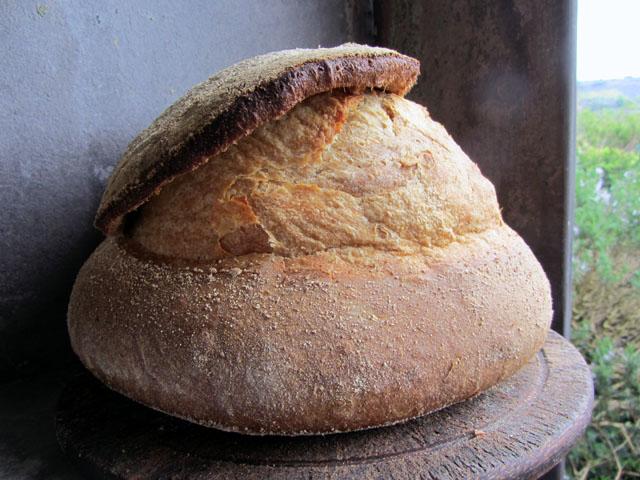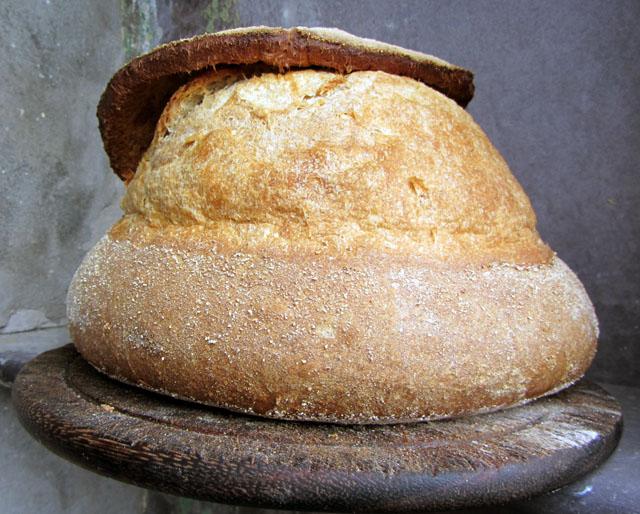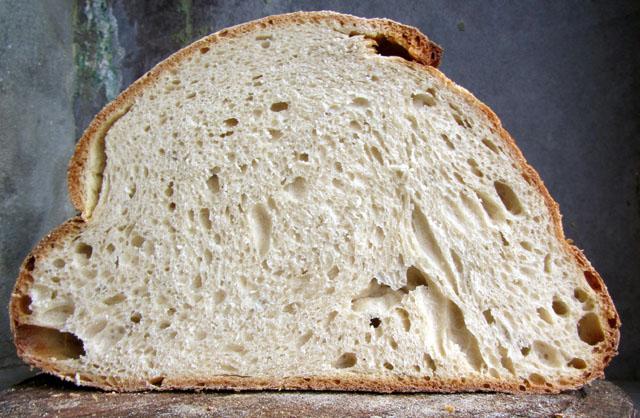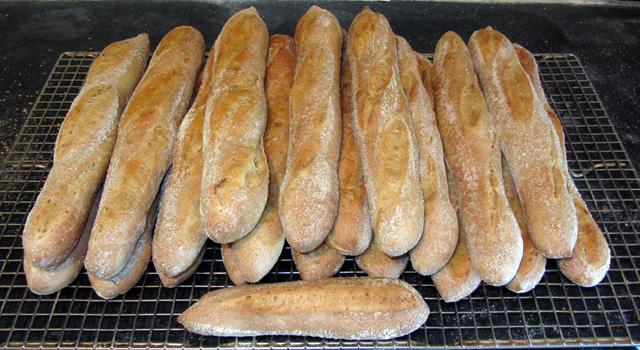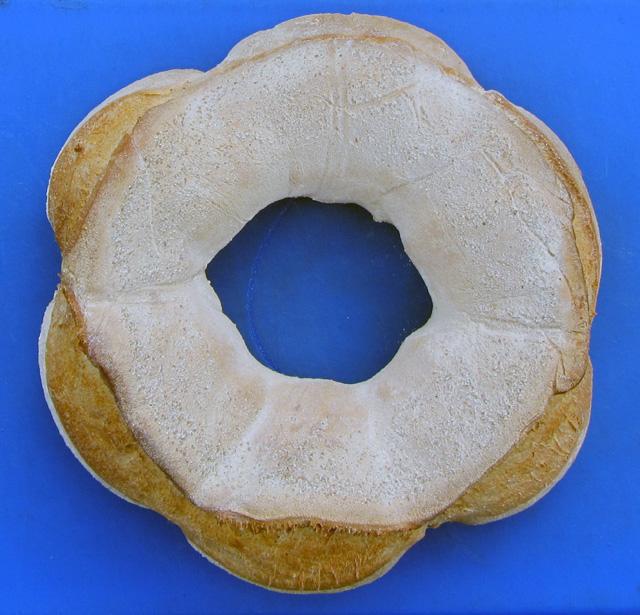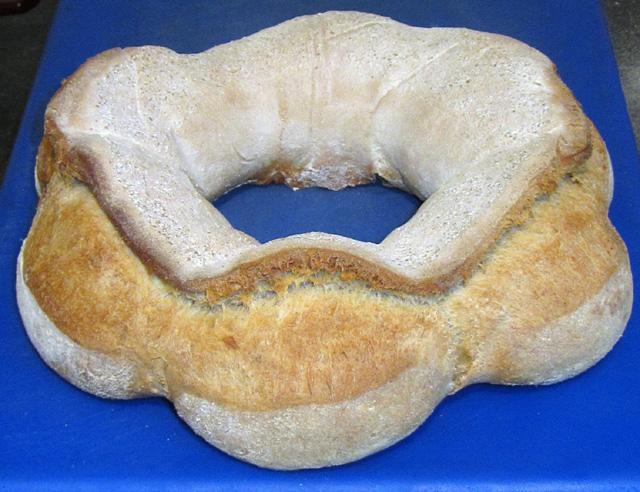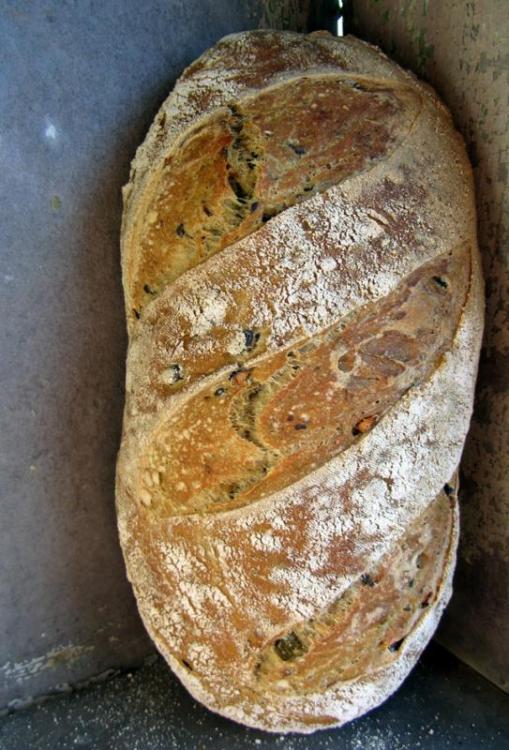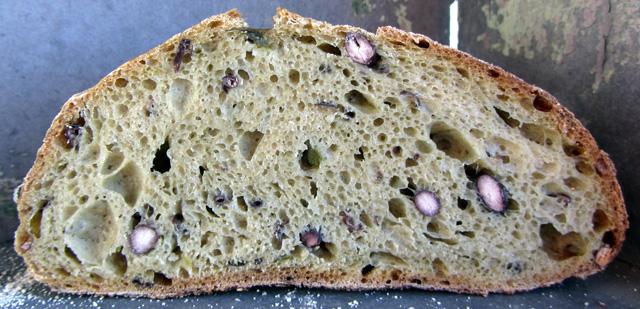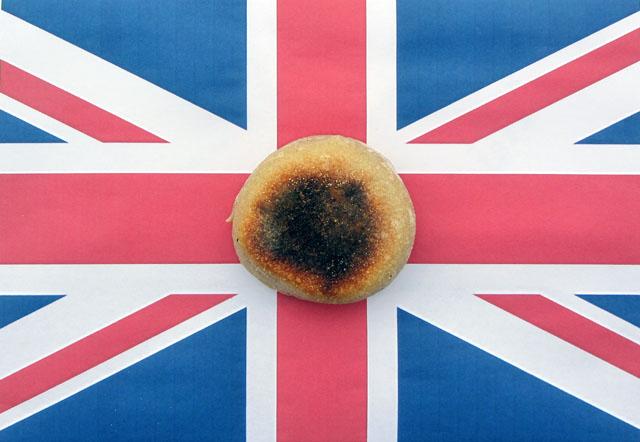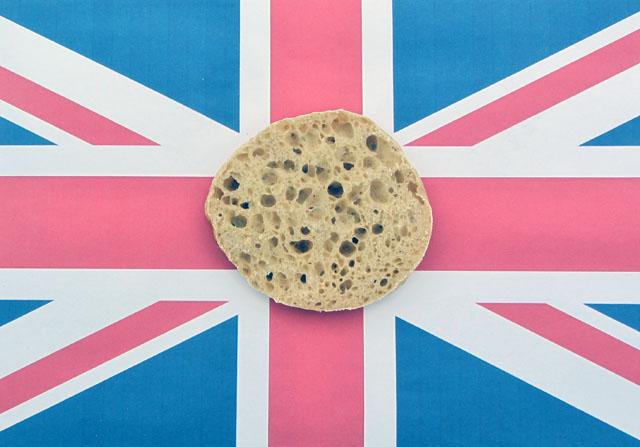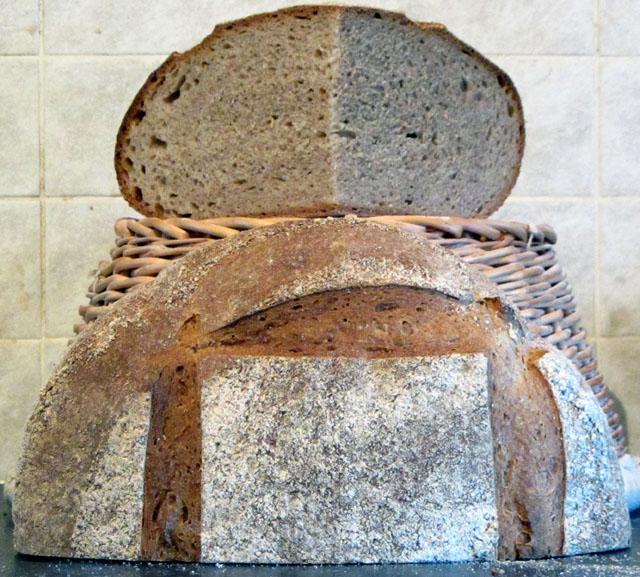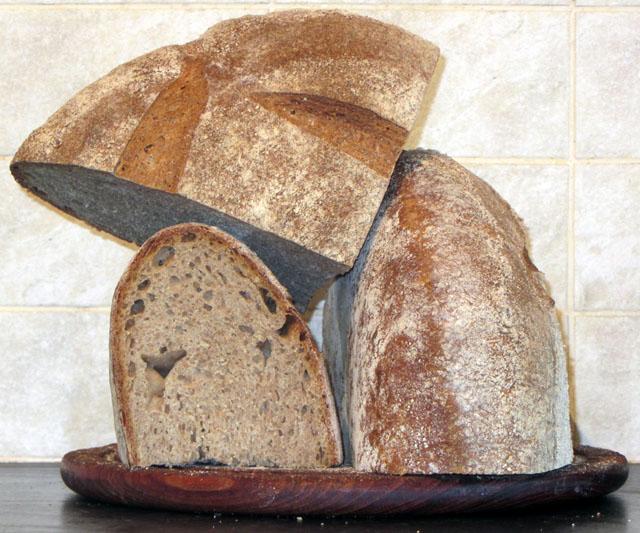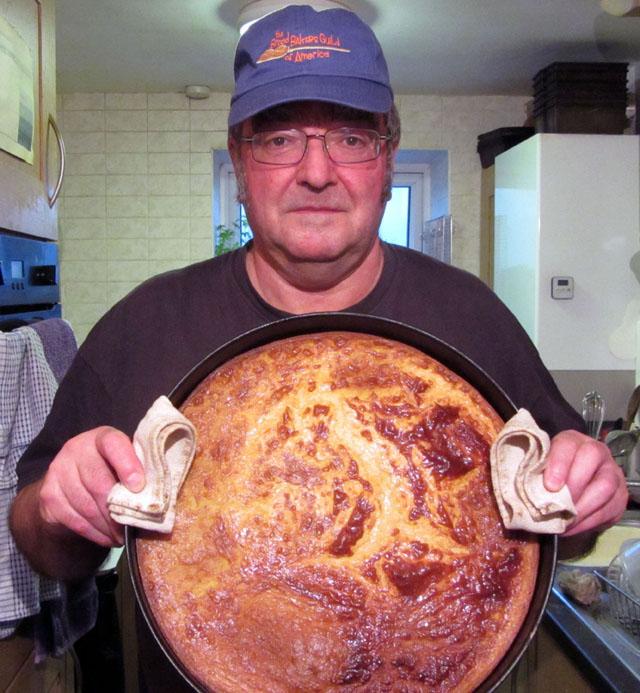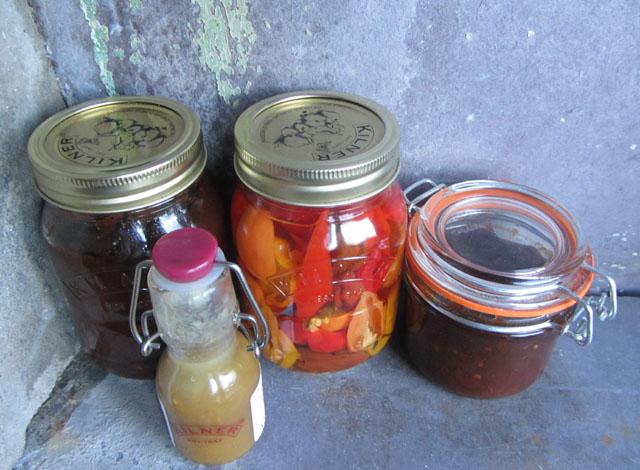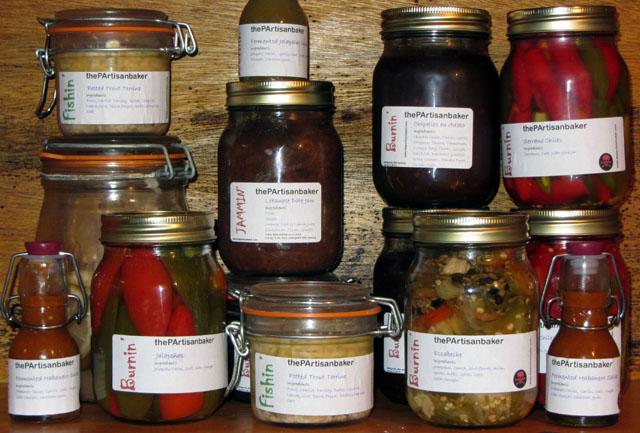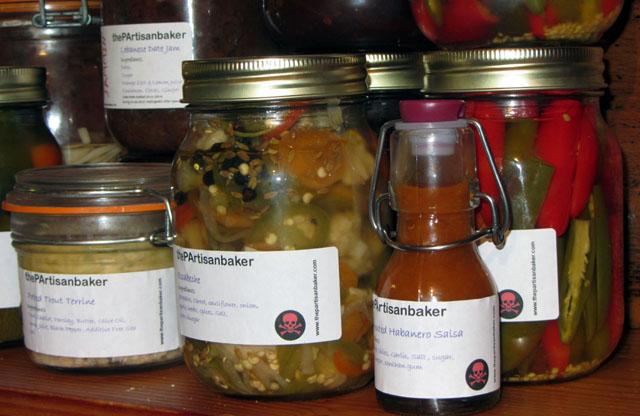
bethesdabakers
participating member-
Posts
239 -
Joined
-
Last visited
Content Type
Profiles
Forums
Store
Help Articles
Everything posted by bethesdabakers
-
Mistake or masterpiece? Bit of both? This is a French auvergnat. Problem is you're supposed to push two fingers through the centre of of the dough like an English cottage loaf just before it goes in the oven. Guess who forgot? Mick
-
Hi KoB It's clear from your enthusiasm that if you want to be a baker you will be a baker. Here's your challenge. Send me your email address by personal message or via my blog. I will send you a free pdf copy of my book "Sourdouigh made Simple" and you bake a loaf from it within ten days and post the results here. Fair enough? Mick
-
Twenty sourdough baguettes (+ a runt): KoB - if you want to be a good baker you should learn about sourdough. Mick
-
Hi KoB Fair play to you for putting up the recipe and photos. I won't add anything more because you are getting maybe too much advice already and I don't want to complicate it any further. Just keep at it! Mick
-
Hi KingofBaguette It's really difficult to give advice on a secret recipe. If you want advice on making bread give as much info as possible plus photos. Mick
-
01 May 2015: International Workers' Day Celebration Baking
bethesdabakers replied to a topic in Pastry & Baking
Reality check. One day we're celebrating International Workers Day, next day we have another royal mouth to feed. Anyway I thought I should make the best of it and turned out a couronne (a crown) - what you might call a pain ironique. I'll attempt a less clunky version today. Mick -
I know the US celebrates Labor Day in September but International Workers Day is 01 May. I bake for a Dutch chef who organises pop-ups in various locations around this part of North Wales. His menus move from country to country every week which keeps me on my toes and this week he's doing Cuba. The main item was Black Bean, Jalapenos and Coriander (Cilantro) Bread but I couldn't resist doing the Chipotle and Cumin "Cigars" as an extra. Mick
-
Hi CatPoet Most British beer is made with barley malt - it's more coeliacs who have to be careful with beer because they usually contain gluten. Besides, some men seem to be able to turn their intolerances off when it comes to alcohol! Mick
-
Hi Elaina You are obviously exploring the world of bread making in an adventurous and experimental way. There are two dangerous traps when people are learning about bread, the “expert bakery writer” and “authenticity”. So there are two value loaded phrases in the title of your post “Peter Reinhart” who is a famous writer of bread books and so must be right, and “pate fermentee” which is even worse because not only is it a traditional baking technique, it’s French and so must be doubly right. When you get down to it pate fermentee, biga, poolish and other preferments are largely the same animal and are there to add some flavour to commercially yeasted breads. They confuse people because they come from different traditions and have different names. So the solution is to make naturally leavened bread which doesn’t require additional techniques to add flavour. And after all, what is a sourdough starter if it isn’t a preferment? Good luck with your experiments. Best wishes Mick
-
Not sure what date Easter is next year but there are recipes for both breads in Carol Field's The Italian Baker. Mick
-
Hi CatPoet I certainly did taste them. I had some with cheese last night (you know that dangerous dairy product that contains fats and salt). They were really good - consistency of oat cakes. I thought maybe they were thicker than intended but you have to try things out. My water was up to 215g - and I added more after it had been sitting for half an hour - that's wholemeal rye and unhulled sesame for you, soaks it up. Next time I'm going wetter from the start - and it's going to be beer. I have plenty of serious sourdough rye recipes thank you. But if you want to start a rye thread I'm with you. Best wishes Mick
-
Hey CatPoet,how about this: The dragon is one of the national emblems of Wales as I'm sure you all know, so a few would be great for the reception (not too many - that dough cutter is a little fiddly!) I think these are smaller than tradition but they look and taste great. Just 100% wholemeal rye, sesame seed and water for a first try. Thanks - you posted this just at the right time for me. Franci - thanks for the link but I'm just a common-or-garden bread baker. Anyone calling something "The Bread that Changed my Life" needs to get one (a life that is). Anyone who has coeliac disease has my total sympathy but there are so few of them around and so many eating crap bread and blaming gluten, wheat, carbs. Bring on the focaccine! (but convert them to sourdough first). Best wishes
-
Saves me asking the question - the Knäckebröd looks so attractive. I have to make flat and crisp breads for a friend's wedding reception. The groom is wheat intollerent but can do rye so I shall try out the rye version with beer I think - I have a feeling that would go down well with the groom! Thanks CatPoet. I was going to say the same for the focaccine you posted a few weeks back, Franci. Some breads just make you want to get stuck in. Mick
-
-
You know about the Maillard Reaction. Well I think what you got was the Maitai Reaction. Prof Calvel don't approve but all the keen types who were posting on forums when I was learning were striving to get a blistered crust. I did some work for a traditional Britsh craft baker last year and he too had been taught that blistering was a "fault" (didn't actually worry about the overall standard of the produce on the other hand). The important thing is to make the bread the way you want it. So you must have done good. Cheers! Mick
-
After all these years of making bread, I never made a muffin. But I'm planning a TexMex birthday brunch for a few people next Sunday and Robb Walsh has a recipe for Huevos Benedictos where the Hollandaise Sauce takes on some chipotle and refried beans come into the equation. So I look for muffin recipes and The Cheeseboard Collective Works, one of my favourite books even if it is all spoons and cups, had the answer. I used my most basic white sourdough formula - Strong White Flour 100%, Water 59%, Starter 26.4%, Salt 1.5%. Fermented at room temperature for four hours, folded every hour. Then, pressed out the dough into a rectangle about ¾ inch thick, cut 3 inch rounds with a floured glass. Proved the rounds on a baking sheet liberally dusted with corn meal for two hours. Heated a baking stone on a low gas for five minutes. Dusted the baking stone with corn meal, cooked the rounds for 10 minutes either side. Easy or what? Mick
-
-
Smithy, I'd have baked it! Later in the week I’ll be baking potato and black onion seed bread and apricot and almond fougasse for customers. But this to me is what bread is all about: A two kilo Mick’s Classic Sourdough. No frills, just starter, strong white and wholemeal wheat flours, water, salt. The sort of bread you’ll find on French markets, probably made of T80 flour and three or more kilos. There they will sell you a piece by weight and at home the best approach is to cut it in quarters and freeze what is unlikely to be used in the next few days. But it will keep for a week and the flavour develops with time. Of course you can make smaller loaves but for me two kilos is perfect. It retains moisture and bakes evenly (65 minutes at 210C in my oven) and the flavour is affected by the crust/crumb ration of the larger loaf. Impossible to improve upon. Mick
-
Sounds incredibly similar to Moroccan Kalinte. I've done the recipe from Paula Woolfert's wonderful The Food of Morocco a couple of times. This calls for an egg, 6 tablespoons olive oil, 2 teaspoons salt, 1 litre lukewarm water and 350g chickpea flour. The egg and most of the oil are whisked in a blender followed by the salt and half of the water followed by the remaining flour and enough water to make a smooth mix. This goes through a seive and the remaining water is stirred in. The mixture then stands for at least half a day or up to two days in the fridge. The first time I did this it was so wet I was convinced the water quantity was way out - should have trusted Paula. The baking is quite unusual. Put a pizza stone in the oven turned up to 250C well in advanced. Oil a 35cm deep pizza pan, stir the mixture and pour it in. Bake for 30 minutes. Brush the surface of the bread with olive oil, partially cover with a baking sheet, turn off the oven, put the bread back in the oven for about 20 minutes. It being Moroccan, the bread is then sprinkled with cumin or harissa. The bread section in the book is quite interesting (not to mention the food to go with it!)
-
You've been practicing!
-
Hi Smithy I know you say your maintenance has been regular but what you are describing are the classic signs of neglect – not enough food and/or too much heat. If it’s reasonably warm where you are and you are storing it at room temperature you should feed it every day (obviously you can’t be doing that or you wouldn’t know about the smell after two days and the hooch after three). You say you are refreshing at equal parts of starter, water, flour. Is this by volume or weight? If volume, that explains why the starter’s getting thinner although the longer it’s left between feeds the wetter it will get. Frequent changes of location won’t help your starter but it should settle down after a couple of days recovery. Your best bet is to refresh it and insist on some fridge space – you only need to store about 100g. That doesn’t take up much space. Good luck! It’s very hard to kill a starter! Mick
-
I'm probably a bit late for the feast now. I was going to emphasise the need for a good supply of Scotch pies (mutton pies). Back in the early 70s when I was a youth I worked as a humble assistant stage manager at Dundee Repertory Theatre and lunch, at the local pub, consisted of hot scotch pies served with baked beans on top inside the rim of the hot water crust. Not only that, a bottle of worcestershire sauce was brought with it to the table which I thought very sophisticated. This, plus a couple of pints of Wm Youngers heavy made for a sustaining lunch in the winter cold. I was reminded of this by a letter in the UK Guardian on Monday on the subject of HP Sauce which read, "You didn’t mention the vital role played by HP sauce in the best hangover breakfast ever - a roll and pie. A mutton pie, that is, hot, in a roll (soft or crispy), with loads of HP. In fact, a great start to any day." Perhaps for the morning after the buffet? Mick
-
Hi Chris I’m pretty new to this whole thing. I’m trying to understand the fermentation process which is a bit ironic given I’ve been a sourdough baker for so long and a supporter of certain fermented beverages. As recommended by Mr Currence I tracked down a cheap copy the Ball Complete Book of Home Preserving – very clearly written apart from the North American volumetric measures. I buy good quality organic cider vinegar in 5 litre quantities. John Currence calls for champagne vinegar but that’s a step too far for my pocket. To be honest I haven’t found it an intrusive taste. The jars are Kilner Jars which are standard UK issue, except for the rubber sealed one which is Vogue, a French company. I use the standard water bath method. Unlike you sunny photographs you can see we are in the deep mid-winter here in mine!
-
I love that book. I got the bug too this year. Do the pickled grapes, they're fabulous and very easy. And the pickled apples.Those two really get people you wouldn't expect nibbling away. But the star, as far as I'm concerned, is his "Tabasco". I've made a jalapenos version and a scotch bonnet. You have a couple of months to wait but it's serious stuff. This year I'm going to have little vats of various chiles fermenting and I'm going into blending. Mick

